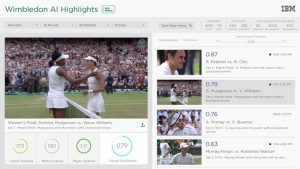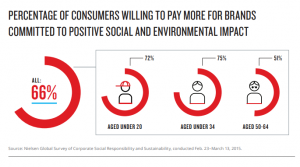The Latest Nielsen Sports’ Report Finds Why Tapping the Power of eSports and Marketing Analytics is a Top Priority for Publishers, Brands, Media and Traditional Sporting Campaigns
Two of the biggest sporting events are underway — The FIFA World Cup Russia 2018 and Wimbledon 2018. And for someone who loves motorsport, the weekend was blazed hot by Max Verstappen in his Red Bull Formula 1 car and the duo in Ferrari at the Spielberg racing track. With so much happening in the sporting arena, how could we keep the role of digital media and data analytics out of it! In the first article of our series on sporting trends influenced by analytics and marketing technologies, we decided to feature Nielsen Sports and their latest report.
Here are some interesting revelations made by Nielsen Sports in their latest report, titled “Top 5 Global Sporting Trends 2018”.
Fans Consume Quality Content at a Disruptive Pace
Live sports remain the most heavily consumed sports content commodity. However, fans are evolving with their choice of consumption, largely attributed to their attention spans. Fan engagement is taking a new route to how content is distributed. Shorter attention spans mean shorter highlights that generate more views.
The report clearly identified fan engagement moments in Formula 1 at the Mexico Grand Prix 2017.
AR/VR, AI and Chatbots Key to Sporting Trends
Fan engagement is seeing new horizons with the growth and ready-availability of technologies like AR/VR, and chatbots. For instance, IBM and the All England Lawn Tennis Club (AELTC) released AI-powered automated video highlights for Wimbledon fans.
The company also unveiled The Wimbledon Messenger. It is a social assistant for those off-site, utilizing the Watson Assistant chatbot capability and delivered within Facebook Messenger. IBM Watson is creating a Wimbledon 150 poster using AI, archiving the best moments of the Championship since its inception!

Technology partners like SAP, Microsoft, and IBM are creating new avenues of story-telling, supporting brands with better IT infrastructure to connect to fans, and partners. Data-driven approaches are at the center of all sporting encounters, marking the rise of savvy, digital marketing teams.
Pay Television Is the “Engine” of Media Revenue; Internet Giants Are Catching Up
New technology giants, including Facebook, YouTube and Amazon are trailblazing digital advertising with much-improved sports content. Low-priced OTT, cord-cutters and live streaming technologies have put traditional Pay TV systems under intense pressure. Despite the competition, Nielsen Sports finds that the Pay TV model remains the primary sports-to-cash media revenue engine.
Power of Micro-Influencers and Celebrities
A large part of content consumption online could be attributed to the rise of micro-influencers and celebrities following the sports. Creating content is expensive; influencers and athletes are true ambassadors who deliver better content monetization opportunities.
Brand-driven content is also delivering enormous, new plains for marketing and media teams to reach and engage fans.
Sports Influence Positive Social Behavior
Nielsen Sports acknowledged the role of sports and society and their fast-changing dynamics. Data analytics reveal that socio-economic factors like racial equality, diversity, gender, sexuality, and environment are dominating media and influencing the audience to get closer to the sports business.

Women’s sports and avenues encouraging minority communities (ethnic) would continue to grow and drive more engagements with sports media and marketing. Nielsen Sports reports that digital spending will increase further on sponsorships and sporting campaigns that showcase a brand’s efforts to promote ethnic diversity, sustainability and other social issues.
eSports: The Blink-and-You-Miss Opportunity
eSports, though still in its infancy, has a credible revenue-generating track record. However, compared to traditional media and online sports campaigns, eSports pales in comparison. More of an entertainment rather than a fully sports-driven segment, eSports could become the next dollar goldmine. Niesen Sports suggests that the eSports community would grow if they generate creative content, powered by up-scale fan experience and events engagement technologies, like IBM for Wimbledon.
Marketing Data and Analytics: The Perfect Opportunity for Brands to Connect with Eager Fans
Whether watching TV or experiencing the raw adrenaline from the stadiums, fans are the most loyal customers for sporting brands. To enable better insights on these fans and viewers, Nielsen announced the launch of Nielsen Live, which delivers real-time data from Nielsen-visited stores to help brands manage their stock appropriately during the matches. The solution also helps Nielsen clients to identify and track stock and distribution levels of ordered items, as well as promotion success, in real-time from anywhere.
We would keep an eye on digital media and marketing data analytics from sporting events that are redefining retail measurement and fan experiences at an unprecedented pace.











